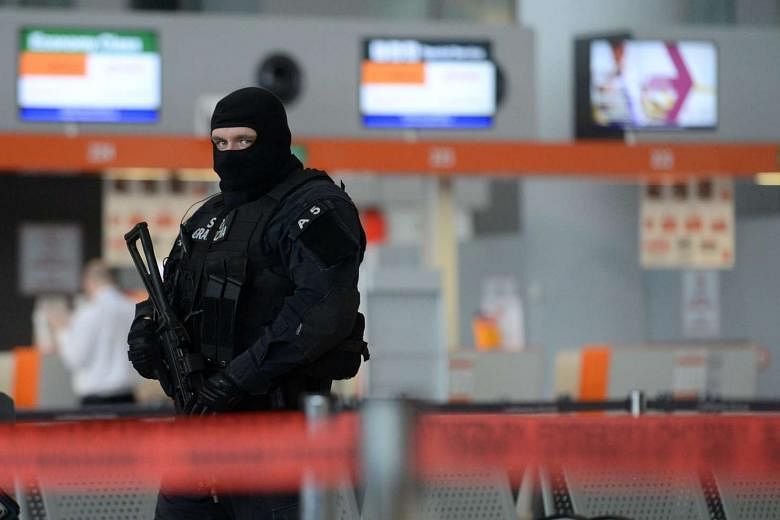SYDNEY • Security was tighter at airports around Asia yesterday, with South Korea, Japan, Indonesia, Thailand and India saying they were deploying additional resources at the major hubs following the twin explosions at Brussels Airport.
New measures include increased checks on those entering terminals and additional patrols within the terminal buildings, said officials from around the region.
Incheon Airport, which serves Seoul, will add around 700 more staff for security monitoring and explosives detection, the operator said. The authorities will also closely check areas such as restrooms and inspect rubbish bins.
Narita Airport, east of Tokyo, has strengthened patrols to identify suspicious objects, said Narita International Airport Corp spokesman Tsuyoshi Ohtake.
In India, where airport security is tighter than in most parts of Asia, only passengers with valid flight tickets and passports were allowed to enter the terminal buildings before Tuesday's attacks.
After the Brussels attacks, the country has begun to check some of the bags that passengers bring into the terminals, said Mr Surender Singh, director general of the Central Industrial Security Force, which is in charge of security at commercial airports.
Airport security was also heightened across Australia, the Federal Police said, adding that measures may include dog and foot patrols. All the airports have been asked to carry out response plans to armed attacks, said Transport Minister Darren Chester.
Australian Prime Minister Malcolm Turnbull blamed Europe's porous borders and lax security for the Brussels attacks, even as he reassured Australians that "our domestic security arrangements are much stronger than they are in Europe, where regrettably they allowed things to slip".
In Europe, most airport arrival and departure halls are freely accessible outside of the secured zone that lies beyond baggage, passport and Customs controls.
After Tuesday's attacks in Belgium, the authorities in London, Paris and Frankfurt responded by stepping up the number of police officers on patrol at their airports and other transport hubs.
In the United States, the largest cities were placed on high alert and the National Guard was called in to increase security at New York City's two airports.
Much of the security checks at aerodromes have been focused on stopping terrorists from boarding planes, with measures such as full-body scans, shoe checks and a ban on everything from liquids to nail clippers.
Airports that do not require people to undergo security checks until they move beyond the departure hall may now be forced to consider a shift to screening at every entrance.
"There will be increased surveillance and security the moment you arrive at the airport after the Brussels incident," said Mr Shukor Yusof, founder of aviation consultancy Endau Analytics in Malaysia. "You already see the urgency. These are very sensitive issues."
REUTERS, BLOOMBERG, AGENCE FRANCE-PRESSE

